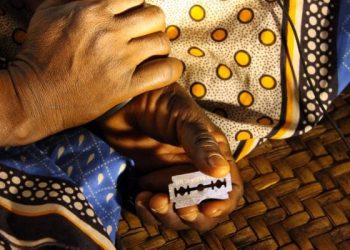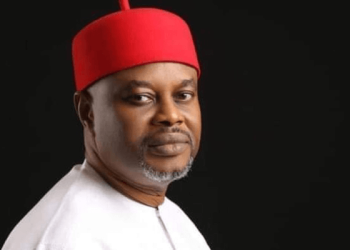From an initial provision of N100 billion, the Ministry of Works’ 2015 capital expenditure is now N11 billion, after the Federal Government’s drastic review of the N4.3 trillion budget. The action is patently indefensible. The Minister of Works, Mike Onolememen, who analysed the implication of this outlay when he appeared at the Senate to defend the ministry’s budget, said that only 33 out of 210 ongoing road projects had funds allocated to them.
Nothing could be more evidential of the lack of rigour and rational input; it is recourse to the rule of thumb in our national budgeting process. If this capital project template for the ministry is allowed by the National Assembly, it means the abandonment of 177 road projects right from the beginning of 2015. This adds to the mounting heap of over 7,000 abandoned projects by successive governments in the past as revealed by a Presidential Task Force headed by Bunu Sherrif, which President Goodluck Jonathan empanelled in 2011.
The minister, who seemed appalled, to say the least, informed the equally shocked members of the Senate Committee on Works, chaired by Ayogu Eze, that the Ministry of Finance based its action on the global fall of crude oil prices. The price of Brent, the equivalent of Nigeria’s Bonny Light, was $56.36 per barrel on Monday. Other departments that received zero capital allocation, according to Onolememen, include the Federal Roads Maintenance Agency and Office of the Surveyor-General of the Federation. A national budget where agencies that are critical to public works will only pay salaries, without doing any work, calls for a review.
Addressing Nigeria’s infrastructure challenges, the World Bank says, will require sustained expenditure of almost $14.2 billion per year over the next decade, or about 12 per cent of the Gross Domestic Product. The National Assembly, therefore, has its work well cut out. It should skew the budget in favour of capital expenditure as it is the only component of the budget that fosters development through the provision of infrastructure. By doing so, the masses feel the impact of governance. If just N11 billion is all there is for the Works Ministry in the budget, an explanation is needed, from the Ministry of Finance, of where the balance in a budget of N4.3 trillion will go.
Babafemi Ojudu may have been vindicated as he raised the alarm in February last year that the budget was bereft of thoroughness. The senator had compared the 2014 budget with the immediate preceding years, only to discover that there were no marked differences; in fact, in many cases, the duplication of items and word-for-word copying were rampant.
Eze was right in observing that road construction and maintenance needed at least N500 billion annually, given our huge deficit in infrastructure. He noted, “To now be given just N11 billion means the ministry would need a magician to perform wonders.” No, the situation can be redeemed if the parliament scrupulously does its work by chopping off the luxury items of the executive arm of government and other frivolities inherent in the budget. Drastic cuts are needed in these areas of the budget in order to free funds for Works Ministry operations.
The International Monetary Fund has just advised in its latest report that “It will be essential to ensure that fiscal adjustment is achieved without endangering the delivery of critical public services.” But a country seriously committed to a successful management of the present cash crunch will not allow its President to use 11 presidential jets as Goodluck Jonathan does, when the British Prime Minister, David Cameron, regularly flies commercial airlines. The President should be made to face this reality; it is a responsibility the parliament and citizens owe our beleaguered nation. Our budget every year cannot continue to be used to satiate the desires of just a few at the expense of projects for public good, of which road infrastructure stands out. Even Vladimir Putin’s Russia, an oil producing country, is reacting differently by pegging its crude oil benchmark price for the budget at $40pb and reordering its priorities.
Yes, the urgency of the moment demands belt-tightening in spending; but this does not justify the N11 billion allocated to Works, which had N143.5 billion in 2012 and N98.8 billion as its share of capital spending. Only N45.6 billion was released. Cumulatively, the ministry has N203.3 billion budgeted but unreleased funds between 2011 and 2014, by the Budget Office. Yet, this was when crude oil prices were still in their boom.
We believe that with the Budget Office arithmetic that presented only N11 billion for Works is premised on a faulty formula. Nigeria has a road network of 204,200 kilometres, neglected over the years due to ravaging official corruption. Out of this figure, 34,120 kilometres are federal roads. That they are death traps is a fact underscored by the number of ghastly crashes recorded annually.
According to statistics from the Corps Marshal of the Federal Road Safety Corps, Boboye Oyeyemi, 6,055 persons died from road accidents in 2010; 6,092 in 2012; and 6,450 in 2013. In 2014, Nigeria recorded 4,643 deaths in road crashes. Regrettably, the victims were mostly young, the productive segment of the populace, he added.
The N11 billion to Works for road projects this year, therefore, will only aggravate, rather than force the decline of this gory spectacle.













































